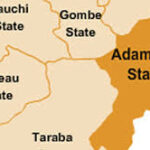Town planning ab initio is a multi-disciplinary profession. Before now you could not be a town planner until you had graduated from any of the building industry professions in a tertiary institution. Then you might go for a second degree in town planning.
The first generation town planners in Nigeria were architects, engineers, geographers or surveyors before they proceeded for their second degree in town planning.
In the course of studying town planning, you are supposed to know the rudiments of architecture, civil engineering, surveying, etc. All of these are integrated in the course because you are dealing and superintending with issues of world cities and this involves what has been produced by architects, engineers, and surveyors.
As the city manager, you have the urban and regional planning law in Nigeria and this law recognises all the other professionals in the building industry and is found in the development control department in each state.
The town planner is responsible for vetting all building plans, thus he is entrusted with the leadership of all these activities, hence the uniqueness of town planning.
There may be and overlap of functions in administration but town planners as administrators of the city are distinct, so in the beginning with regards to Abuja, the urban and regional departments of the FCDA were responsible for the implementation of the Abuja Master Plan after the surveyors had finished plotting.
The architect would produce architectural drawings according to planning requirements then the engineers which include electrical, structural and mechanical would do their own, so all these are based on a plan produced by the town planner.
The town planner thus needs the cooperation of all these built industry professionals and therefore the town planning profession is an all-encompassing activity.
The town planner ensures he puts the right thing in its place; he produces a layout according to specifications. Of course in an imperfect society, there are people who cut corners so in order not to compromise standards, the town planning profession has a regulatory body called the Town Planners Registration Council (TOPREC) and there are dos and don’ts, so if anyone compromises, he/she is sanctioned appropriately. There are instances where licences of some town planners were withdrawn and in some cases even prosecuted.
The option for town planners who may not be employed in the public sector, they may engage successfully in private practice. Like in Abuja, we have private town planning consultants who prepare plans for various districts according to standards, and with other professionals, will later be involved in what we call planning review.
This is what makes the town planner very important in the building industry.
Tpl. Umar Shuaibu is the Coordinator, Abuja Metropolitan Management Council (AMMC)
 Join Daily Trust WhatsApp Community For Quick Access To News and Happenings Around You.
Join Daily Trust WhatsApp Community For Quick Access To News and Happenings Around You.


